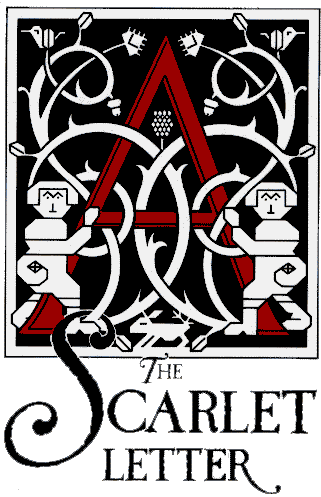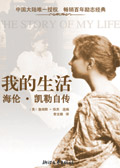奥兰多orlando (英文版)作者:弗吉尼亚·伍尔芙-第24部分
按键盘上方向键 ← 或 → 可快速上下翻页,按键盘上的 Enter 键可回到本书目录页,按键盘上方向键 ↑ 可回到本页顶部!
————未阅读完?加入书签已便下次继续阅读!
t began; continued; or concluded with a declaration of love; but in between there was much room for silence。 They sat on either side of the fireplace and sometimes the Archduke knocked over the fire–irons and Orlando picked them up again。 Then the Archduke would bethink him how he had shot an elk in Sweden; and Orlando would ask; was it a very big elk; and the Archduke would say that it was not as big as the reindeer which he shot in Norway; and Orlando would ask; had he ever shot a tiger; and the Archduke would say he had shot an albatross; and Orlando would say (half hiding her yawn) was an albatross as big as an elephant; and the Archduke would say—something very sensible; no doubt; but Orlando heard it not; for she was looking at her writing–table; out of the window; at the door。 Upon which the Archduke would say; ‘I adore you’; at the very same moment that Orlando said ‘Look; it’s beginning to rain’; at which they were both much embarrassed; and blushed scarlet; and could neither of them think what to say next。 Indeed; Orlando was at her wit’s end what to talk about and had she not bethought her of a game called Fly Loo; at which great sums of money can be lost with very little expense of spirit; she would have had to marry him; she supposed; for how else to get rid of him she knew not。 By this device; however; and it was a simple one; needing only three lumps of sugar and a sufficiency of flies; the embarrassment of conversation was overe and the necessity of marriage avoided。 For now; the Archduke would bet her five hundred pounds to a tester that a fly would settle on this lump and not on that。 Thus; they would have occupation for a whole morning watching the flies (who were naturally sluggish at this season and often spent an hour or so circling round the ceiling) until at length some fine bluebottle made his choice and the match was won。 Many hundreds of pounds changed hands between them at this game; which the Archduke; who was a born gambler; swore was every bit as good as horse racing; and vowed he could play at for ever。 But Orlando soon began to weary。
What’s the good of being a fine young woman in the prime of life’; she asked; ‘if I have to pass all my mornings watching blue–bottles with an Archduke?’
She began to detest the sight of sugar; flies made her dizzy。 Some way out of the difficulty there must be; she supposed; but she was still awkward in the arts of her sex; and as she could no longer knock a man over the head or run him through the body with a rapier; she could think of no better method than this。 She caught a blue–bottle; gently pressed the life out of it (it was half dead already; or her kindness for the dumb creatures would not have permitted it) and secured it by a drop of gum arabic to a lump of sugar。 While the Archduke was gazing at the ceiling; she deftly substituted this lump for the one she had laid her money on; and crying ‘Loo Loo!’ declared that she had won her bet。 Her reckoning was that the Archduke; with all his knowledge of sport and horseracing; would detect the fraud and; as to cheat at Loo is the most heinous of crimes; and men have been banished from the society of mankind to that of apes in the tropics for ever because of it; she calculated that he would be manly enough to refuse to have anything further to do with her。 But she misjudged the simplicity of the amiable nobleman。 He was no nice judge of flies。 A dead fly looked to him much the same as a living one。 She played the trick twenty times on him and he paid her over 17;250 pounds (which is about 40;885 pounds 6 shillings and 8 pence of our own money) before Orlando cheated so grossly that even he could be deceived no longer。 When he realized the truth at last; a painful scene ensued。 The Archduke rose to his full height。 He coloured scarlet。 Tears rolled down his cheeks one by one。 That she had won a fortune from him was nothing—she was wele to it; that she had deceived him was something—it hurt him to think her capable of it; but that she had cheated at Loo was everything。 To love a woman who cheated at play was; he said; impossible。 Here he broke down pletely。 Happily; he said; recovering slightly; there were no witnesses。 She was; after all; only a woman; he said。 In short; he was preparing in the chivalry of his heart to forgive her and had bent to ask her pardon for the violence of his language; when she cut the matter short; as he stooped his proud head; by dropping a small toad between his skin and his shirt。
In justice to her; it must be said that she would infinitely have preferred a rapier。 Toads are clammy things to conceal about one’s person a whole morning。 But if rapiers are forbidden; one must have recourse to toads。 Moreover toads and laughter between them sometimes do what cold steel cannot。 She laughed。 The Archduke blushed。 She laughed。 The Archduke cursed。 She laughed。 The Archduke slammed the door。
‘Heaven be praised!’ cried Orlando still laughing。 She heard the sound of chariot wheels driven at a furious pace down the courtyard。 She heard them rattle along the road。 Fainter and fainter the sound became。 Now it faded away altogether。
‘I am alone;’ said Orlando; aloud since there was no one to hear。
That silence is more profound after noise still wants the confirmation of science。 But that loneliness is more apparent directly after one has been made love to; many women would take their oath。 As the sound of the Archduke’s chariot wheels died away; Orlando felt drawing further from her and further from her an Archduke (she did not mind that); a fortune (she did not mind that); a title (she did not mind that); the safety and circumstance of married life (she did not mind that); but life she heard going from her; and a lover。 ‘Life and a lover;’ she murmured; and going to her writing–table she dipped her pen in the ink and wrote:
‘Life and a lover’—a line which did not scan and made no sense with what went before—something about the proper way of dipping sheep to avoid the scab。 Reading it over she blushed and repeated;
‘Life and a lover。’ Then laying her pen aside she went into her bedroom; stood in front of her mirror; and arranged her pearls about her neck。 Then since pearls do not show to advantage against a morning gown of sprigged cotton; she changed to a dove grey taffeta; thence to one of peach bloom; thence to a wine–coloured brocade。 Perhaps a dash of powder was needed; and if her hair were disposed—so—about her brow; it might bee her。 Then she slipped her feet into pointed slippers; and drew an emerald ring upon her finger。 ‘Now;’ she said when all was ready and lit the silver sconces on either side of the mirror。 What woman would not have kindled to see what Orlando saw then burning in the snow—for all about the looking–glass were snowy lawns; and she was like a fire; a burning bush; and the candle flames about her head were silver leaves; or again; the glass was green water; and she a mermaid; slung with pearls; a siren in a cave; singing so that oarsmen leant from their boats and fell down; down to embrace her; so dark; so bright; so hard; so soft; was she; so astonishingly seductive that it was a thousand pities that there was no one there to put it in plain English; and say outright; ‘Damn it; Madam; you are loveliness incarnate;’ which was the truth。 Even Orlando (who had no conceit of her person) knew it; for she smiled the involuntary smile which women smile when their own beauty; which seems not their own; forms like a drop falling or a fountain rising and confronts them all of a sudden in the glass—this smile she smiled and then she listened for a moment and heard only the leaves blowing and the sparrows twittering; and then she sighed; ‘Life; a lover;’ and then she turned on her heel with extraordinary rapidity; whipped her pearls from her neck; stripped the satins from her back; stood erect in the neat black silk knickerbockers of an ordinary nobleman; and rang the bell。 When the servant came; she told him to order a coach and six to be in readiness instantly。 She was summoned by urgent affairs to London。 Within an hour of the Archduke’s departure; off she drove。
And as she drove; we may seize the opportunity; since the landscape was of a simple English kind which needs no description; to draw the reader’s attention more particularly than we could at the moment to one or two remarks which have slipped in here and there in the course of the narrative。 For example; it may have been observed that Orlando hid her manuscripts when interrupted。 Next; that she looked long and intently in the glass; and now; as she drove to London; one might notice her starting and suppressing a cry when the horses galloped faster than she liked。 Her modesty as to her writing; her vanity as to her person; her fears for her safety all seems to hint that what was said a short time ago about there being no change in Orlando the man and Orlando the woman; was ceasing to be altogether true。 She was being a little more modest; as women are; of her brains; and a little more vain; as women are; of her person。 Certain susceptibilities were asserting themselves; and others were diminishing。 The change of clothes had; some philosophers will say; much to do with it。 Vain trifles as they seem; clothes have; they say; more important offices than merely to keep us warm。 They change our view of the world and the world’s view of us。 For example; when Captain Bartolus saw Orlando’s skirt; he had an awning stretched for her immediately; pressed her to take another slice of beef; and invited her to go ashore with him in the long–boat。 These pliments would certainly not have been paid her had her skirts; instead of flowing; been cut tight to her legs in the fashion of breeches。 And when we are paid pliments; it behoves us to make some return。 Orlando curtseyed; she plied; she flattered the good man’s humours as she would not have done had his neat breeches been a woman’s skirts; and his braided coat a woman’s satin bodice。 Thus; there is much to support the view that it is clothes that wear us and not we them; we may make them take the mould of arm or breast; but they mould our hearts; our brains; our tongues to their liking。 So; having now worn skirts for a co
![[网王同人]colorless wind封面](http://www.baxi2.com/cover/noimg.jpg)
![[bbcsherlock]致我心中的你封面](http://www.baxi2.com/cover/22/22011.jpg)


